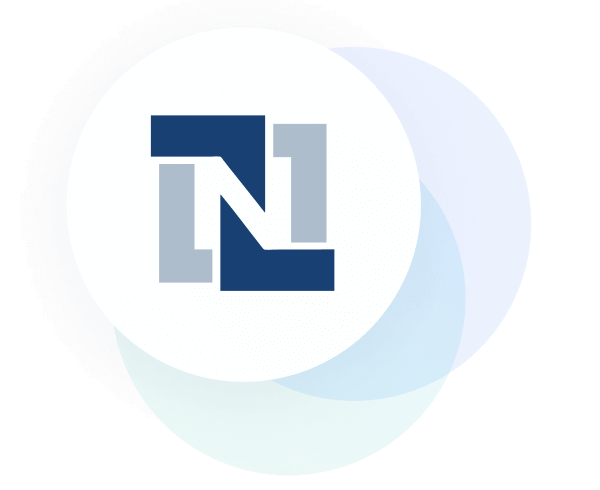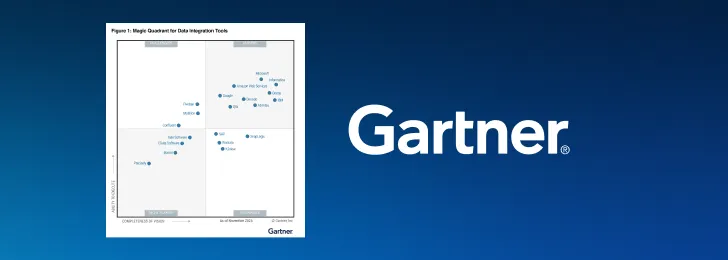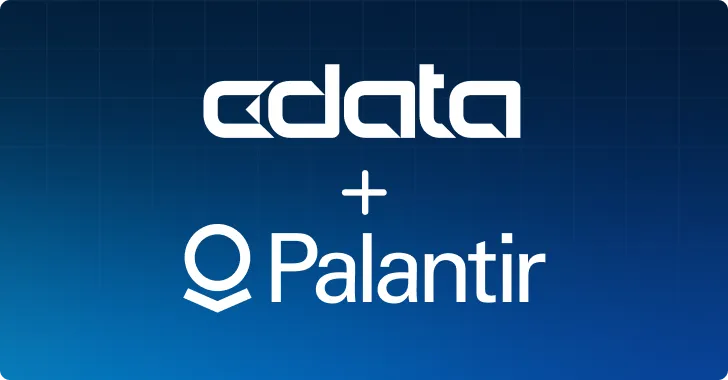
Businesses rely on a wide variety of applications and systems to handle different aspects of their operations, from human resources and finance to customer relationship management. The ability to seamlessly integrate data across these diverse platforms is crucial for gaining comprehensive insights, improving decision-making processes, and ensuring a cohesive and agile business environment.
NetSuite is a leading Enterprise Resource Planning (ERP) solution used by businesses across industries. Recognized for its comprehensive suite of applications and robust API, NetSuite provides an integrated platform that unifies key business processes such as financial management, order processing, inventory control, and customer relationship management. NetSuite’s integration capabilities enable businesses to break down data silos, which promotes real-time visibility into operations and facilitates informed decision-making. This enhances operational efficiency and empowers organizations to adapt swiftly to changing market dynamics.
What is NetSuite and why should I integrate it?
The NetSuite ERP offers a comprehensive suite of applications to streamline and integrate business processes. Integrating NetSuite into your business operations can yield numerous benefits. It centralizes data from different departments, which breaks down silos and enables seamless communication between multiple functions. Because it’s cloud-based, NetSuite is accessible from anywhere, which promotes collaboration and flexibility in rapidly changing business environments.
NetSuite's robust features help automate manual tasks, reduce errors, and improve overall operational efficiency. It’s scalable, so businesses can adapt and easily incorporate new functionalities to meet evolving requirements. NetSuite's APIs play a pivotal role in its technical integration prowess. They allow seamless communication and data exchange between NetSuite and other third-party applications or systems. This technical flexibility is instrumental in streamlining data flow across different business functions.
By implementing API integrations, businesses can ensure that critical information—such as customer data, sales orders, and inventory levels—remains current across various applications. This helps eliminate manual data entry errors and accelerates business processes by providing real-time access to the most current information. NetSuite offers customized integrations tailored to specific business needs. Businesses can create integrations that connect NetSuite with their applications and systems, align with their unique workflows, and enhance the efficiency of business processes.
In essence, NetSuite's powerful integration capabilities empower businesses to optimize data flow, reduce redundancy, and enhance the quality of information across their entire ecosystem.
6 benefits of NetSuite integrations
From enhanced collaboration capabilities to real-time access to data, this list highlights six of the benefits that NetSuite brings to businesses.
- Centralized data management: NetSuite integration consolidates data from multiple departments into a centralized platform, providing a unified view of critical business information.
- Real-time data access: Through seamless integration, businesses gain real-time access to updated information. Decision-makers have the most current data at their disposal, facilitating faster and more informed decision-making.
- Automated workflows: NetSuite integration enables the automation of manual tasks and workflows. In addition to reducing the risk of errors, this enhances operational efficiency by streamlining processes such as inventory management, order processing, and invoicing.
- Customization capabilities: Businesses can tailor NetSuite to their individual needs by creating bespoke integrations that align with their unique workflows and operational requirements.
- Enhanced collaboration: NetSuite facilitates collaboration by providing accessibility from anywhere. Teams can collaborate in real time, fostering communication and coordination across departments, no matter where they are.
- Analytics and reporting: Businesses can derive meaningful insights from integrated data, which helps them assess performance, identify trends, and make strategic data-driven decisions.
15 popular NetSuite integrations
Let’s dig deeper into how you can unlock the full potential of your business operations with a diverse array of NetSuite integrations tailored to optimize various facets of your workflows. From e-commerce management with platforms like Shopify and Magento to unified customer relationship insights through Salesforce integration, these NetSuite integrations empower businesses with the flexibility to customize their tech stack. This curated list of integrations offers a comprehensive suite of solutions to propel your business forward.
- Salesforce: Connect NetSuite with Salesforce to unify sales and customer data, enhancing collaboration between sales and other departments.
- Magento: Connect NetSuite with Magento for comprehensive e-commerce management, ensuring synchronized product information, inventory levels, and order fulfillment.
- HubSpot: Unify marketing and sales efforts by integrating NetSuite with HubSpot to enable a holistic view of customer interactions and improving lead-to-customer conversion processes.
- Zendesk: Enhance customer support operations by integrating NetSuite with Zendesk to support efficient ticket management, customer data access, and streamlined issue resolution.
- Concur: Streamline travel and expense management by integrating NetSuite with Concur, improving visibility into corporate spending and compliance.
- Workday: Connect NetSuite with Workday for integrated human resources and financial management, improving employee relations and enhancing workforce planning.
- ServiceNow: Improve IT service management by integrating NetSuite with ServiceNow to ensure efficient communication between IT and other business functions.
- Jira: Enhance project management by integrating NetSuite with Jira, fostering collaboration between project teams and ensuring synchronized project data.
- Amazon Web Services (AWS): Leverage the power of cloud services by integrating NetSuite with AWS, ensuring scalability, security, and optimized performance.
- Microsoft Dynamics 365: Connect NetSuite with Dynamics 365 for unified business applications and streamlined processes across sales, finance, and operations.
- Tableau: Enable advanced data visualization and analytics by integrating NetSuite with Tableau, facilitating in-depth insights into business performance.
- Google Workspace: Enhance collaboration and communication by integrating NetSuite with Google Workspace to ensure seamless data sharing and document collaboration.
- LinkedIn: Strengthen social selling efforts by integrating NetSuite with LinkedIn, improving lead generation and customer relationship management.
- SAP: Connect NetSuite with SAP for comprehensive business process integration to ensure data consistency and streamlined operations across the enterprise.
- Shopify: Integrate NetSuite with Shopify to synchronize e-commerce data, streamline order processing, and manage inventory effectively across online and offline channels.
How to choose the best NetSuite ERP integration for your business
Choosing the right NetSuite integration solution is a critical decision that can significantly impact the efficiency of your business processes. Here is a list of considerations to help you decide:
- Define business requirements and integration objectives: Understand your business requirements and the level of customization required. Consider factors like the frequency of updates, and scalability requirements. Outline your integration goals. Identify processes, data sources, and workflows that need integration with NetSuite.
- Evaluate NetSuite's native capabilities: Explore NetSuite's native integration capabilities. Determine if these features meet your requirements or if additional solutions are needed.
- Research integration options and check vendor reliability: Research third-party integration solutions, iPaaS platforms, and connectors (learn more about these options below). Assess the reputation and reliability of integration solution providers. Examine customer reviews, case studies, and the vendor's track record in delivering successful integrations.
- Consider usability: Evaluate the user-friendliness of the integration solution. Choose a platform that aligns with your team’s technical expertise and offers a streamlined setup process.
- Review integration methods: Understand the integration methods offered by the solution, such as whether it supports API-based integration, connectors, or provides codeless integration capabilities.
- Ensure scalability: Consider the scalability of the integration solution. Ensure that it can accommodate the growth of your business and handle increasing data volumes without performance issues.
- Examine customization options: Assess the level of customization the integration solution allows. Does it support tailored workflows, data mapping, and business logic adjustments to meet your organization’s unique requirements?
- Check data security: Verify that the solution adheres to industry standards for encryption, authentication, and authorization, especially when dealing with sensitive information.
- Evaluate support and maintenance: Review the support and maintenance services offered by the provider. Ensure there is a reliable support system for addressing issues and receiving timely updates.
- Calculate total cost of ownership (TCO): Consider the complete cost of implementing and maintaining the integration solution. Include license fees, customization costs, support fees, and any potential hidden costs.
- Plan for future integrations: Choose a solution that can easily adapt to evolving business requirements and seamlessly integrate with additional applications.
By carefully considering these steps and factors, you can navigate the decision-making process and select the NetSuite integration solution that best aligns with your business objectives and requirements.
3 NetSuite integration options
Now let’s look at three ways in which can you perform NetSuite integration. The decision about which approach to take is determined by your organization’s level of technical expertise, your budget, and which applications you want to integrate with NetSuite.
Building code from scratch
Integrating NetSuite by building the code from scratch involves leveraging NetSuite's SuiteTalk API for custom development. Here's a high-level guide on how you might approach this process:
- Understand SuiteTalk API: Become familiar with NetSuite's SuiteTalk API documentation. This API lets you interact with NetSuite objects such as customers, transactions, and records.
- Authentication setup: Setup authentication to establish a secure connection between your application and NetSuite. SuiteTalk API typically uses token-based authentication, so you'll need to obtain the required credentials from your NetSuite account.
- Build SOAP requests: Construct SOAP requests that adhere to the NetSuite API specifications. These requests include operations like creating, updating, or retrieving records in NetSuite.
- Handle responses: Implement code to handle the responses from NetSuite. This involves parsing XML responses to extract relevant information or handle errors gracefully.
- Error handling and logging: Implement error handling mechanisms to ensure the reliability of your integration. Incorporate logging functionality to track transactions and troubleshoot issues.
If you have a pool of talented NetSuite architects and developers, this might be the way to go. However, custom development comes with challenges, which can include steep learning curves, error prone development, limited scalability, security concerns, and maintenance challenges.
Using a connector
Integrating NetSuite using a connector offers a more streamlined and efficient approach compared to building code from scratch. A connector is a pre-built integration application designed to connect SaaS applications or solve common use cases and can be sourced from the NetSuite marketplace or directly from a NetSuite partner like CData). CData Drivers and Connectors simplify this process further by abstracting away the underlying complexities of NetSuite's API. Here's a step-by-step guide on how to integrate NetSuite using a connector, highlighting the advantages of leveraging CData NetSuite Connectors:
- Select the NetSuite connector: Choose a NetSuite connector. CData offers a variety of dedicated NetSuite connectors that understand the intricacies of NetSuite's data model and API and are tailor-made for different integration scenarios. Use JDBC, ODBC, or ADO.NET to build applications using familiar frameworks or use bespoke connectors for popular data tools like Excel, Tableau and Power BI.
- Configure connection settings: Enter the necessary connection details. CData Connectors abstract the authentication process from there, making it straightforward and secure.
- Model data: Define the relationships and mappings between NetSuite entities and your other data sources. This ensures that the data integration aligns with your specific business requirements. CData simplifies data modeling by allowing you to define those associations just like you would with a database.
- Query data with SQL: Leverage standard SQL queries to interact with NetSuite data. CData Connectors translate these SQL queries into NetSuite API calls behind the scenes, providing a familiar and consistent interface for data access.
- Handle errors and logging: Build robust and reliable error handling and logging. CData connectors handle errors and exceptions transparently, providing detailed logging to facilitate troubleshooting.
Integrating with NetSuite using a connector abstracts the technical intricacies, so users can focus on leveraging NetSuite data for strategic decision-making instead of building code from scratch. By utilizing a CData NetSuite Connector, businesses can expedite the integration process even further, reducing the learning curve associated with NetSuite's API, and ensuring a more maintainable and scalable integration solution.
Buying an integration platform (iPaaS)
Integrating NetSuite through a purchased Integration Platform as a Service (iPaaS) offers a comprehensive and user-friendly solution. Platforms are different from connectors because they aren’t tied to a specific use case or application; instead, they can be used to build multiple integrations. CData Connect AI, as data virtualization iPaaS solution, can significantly simplify the NetSuite integration process. Here's a guide on how to integrate NetSuite using CData Connect AI:
- Select your iPaaS platform: CData Connect AI, a unified data virtualization platform in the cloud, abstracts away the complexities of NetSuite's API, making the integration process more accessible to non-technical users.
- Subscribe and configure: Sign up for Connect AI and configure your account. Set up the NetSuite connector within the platform, entering the required authentication details and connection parameters.
- Explore pre-built connectors: Connect AI offers a wide range of pre-built connectors, including NetSuite. These connectors encapsulate the intricacies of NetSuite's data model and API, which helps you seamlessly connect to NetSuite without the need for extensive coding.
- Data mapping and transformation: Utilize Connect AI's visual data mapping tools to define relationships between NetSuite entities and other data sources. This step ensures that data is transformed and harmonized according to your specific business requirements.
- Automate workflows: Leverage Connect AI's workflow automation features to set up data synchronization and transfer processes. This includes defining triggers, schedules, and actions to automate the flow of data between NetSuite and other applications.
- Monitor and troubleshoot: Connect AI provides built-in monitoring and logging capabilities, which allow you to track data integration processes in real-time. When you encounter errors or exceptions, the platform offers detailed logs for troubleshooting, ensuring the reliability of your integration.
- Security measures: Connect AI prioritizes data security. Benefit from features like data encryption and support for OAuth authentication to safeguard sensitive NetSuite data during integration.
- Scalability: As your business grows, Connect AI scales with you. Easily add new connections, entities, or data sources to adapt to changing integration requirements.
By adopting Connect AI as your iPaaS solution, you can expedite the NetSuite integration process, reduce complexity, and empower non-technical users to orchestrate data flows seamlessly. Its user-friendly interface and pre-built connectors help organizations harness the power of NetSuite's data without the need for extensive coding efforts, making data integration more accessible and efficient.
CData Connect AI: Seamless Integration with NetSuite
CData provides transformative solutions for businesses seeking to easily and quickly integrate NetSuite into their operations. Both CData Connect AI and CData Connectors mitigate the complexities associated with building code from scratch. Businesses can leverage pre-built connectors and our robust data connectivity platform, which accelerates the integration process, reduces development complexities, and empowers users to orchestrate their data flows seamlessly. Our commitment to security, scalability, and customization aligns with the diverse needs of businesses, making us a strategic partner for unlocking the full potential of NetSuite integration and ensuring an agile and future-proofed data management solution.
Try CData Connect AI today
Get a free trial of CData Connect AI to see how you can transform the way you work with NetSuite data.





